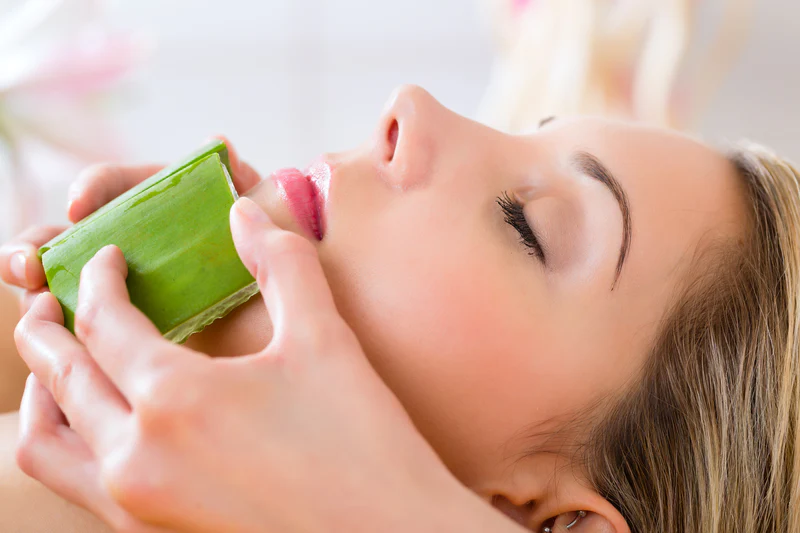Aloe vera is not just a household plant, but a skin care powerhouse, offering numerous benefits for your skin. Known for its soothing, moisturizing, and healing properties, aloe vera can be an excellent addition to your skincare routine. Here’s why you should consider incorporating aloe vera into your daily regimen:

1. Soothes Sunburn
Aloe vera is widely recognized for its soothing properties. The gel from the aloe vera plant helps form a protective layer over the skin, locking in moisture and promoting healing. Its anti-inflammatory effects make it particularly effective in calming sunburnt skin and reducing redness and discomfort.
2. Moisturizes Skin
Aloe vera gel is lightweight and absorbs quickly, making it an ideal moisturizer for oily or combination skin. Unlike many conventional moisturizers that leave a greasy residue, aloe vera hydrates without clogging pores. It can also be used after shaving to calm the skin and prevent irritation or nicks.
3. Speeds Up Wound Healing
Aloe vera is known for its wound-healing properties. The gel is often applied to minor cuts, abrasions, and burns to help speed up the healing process. Its antibacterial and anti-inflammatory properties support skin repair and help reduce the risk of infection.
4. Combats Signs of Aging
Aloe vera is rich in antioxidants like vitamin C, E, and beta-carotene, which can help improve skin elasticity and hydration. While not a miracle cure for aging, these antioxidants contribute to reducing the visibility of wrinkles and fine lines, helping to maintain a youthful complexion.
5. Reduces Acne and Skin Inflammation
The anti-inflammatory properties of aloe vera make it effective in reducing redness, swelling, and irritation. It can also help manage acne by soothing inflamed skin and preventing future outbreaks, thanks to its antimicrobial properties. While aloe vera can aid in acne treatment, it is not a substitute for stronger treatments in severe cases.
6. Lightens Blemishes and Dark Spots
Aloe vera can help lighten dark spots and reduce the appearance of blemishes. It has healing properties that may reduce scar formation and promote more even skin tone. However, the effect on hyperpigmentation may take time and varies from person to person.
7. Nourishes and Heals the Skin
Aloe vera contains over 75 active compounds, including vitamins, minerals, enzymes, and amino acids, that can nourish the skin. These compounds help hydrate the skin, prevent dryness, and manage conditions like flaky skin or mild dermatitis.
How to Use Aloe Vera on Your Skin:
- Direct Application: Apply fresh aloe vera gel directly onto your skin. Let it sit for 20-30 minutes before rinsing it off. This is a great way to soothe and hydrate the skin after sun exposure or shaving.
- Moisturizer: You can use aloe vera gel as a daily moisturizer. Apply a thin layer to your face and neck after washing your face to hydrate and soothe the skin.
- For Acne: Apply a small amount of aloe vera gel directly onto acne spots and leave it on overnight. It can help reduce inflammation and prevent new breakouts.
Conclusion

Aloe vera is a versatile and effective natural remedy for many common skin issues. Whether you’re dealing with sunburn, acne, or signs of aging, aloe vera provides a gentle, soothing, and hydrating solution. For the best results, always use pure aloe vera gel, ideally straight from the plant or from a trusted source that offers pure aloe without added chemicals or preservatives.
By incorporating aloe vera into your skincare routine, you can enjoy its healing, moisturizing, and anti-inflammatory benefits, helping your skin look and feel its best.
